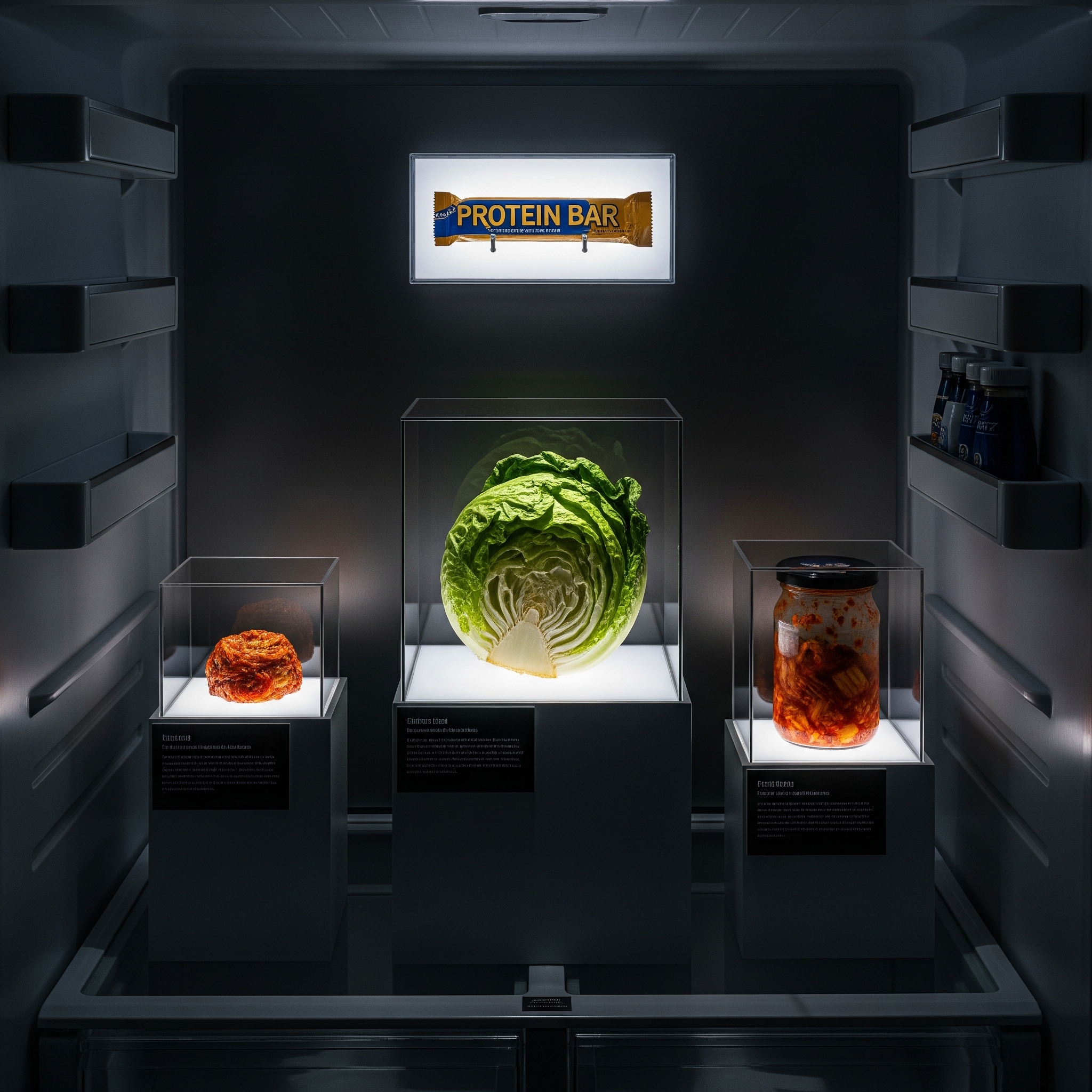
The Kitchen I Saw on Instagram vs. My Actual Kitchen
We’ve all scrolled past it: the perfect kitchen. It’s a vision of pristine, sun-drenched countertops, minimalist decor, and a single,
By entering your email and clicking Subscribe, you’re agreeing to let us send you customized marketing messages about us and our advertising partners.
The kitchen: the heart of the home, a place of nourishment, and a war zone. Whether you’re living with roommates, a significant other, or a family, the kitchen is a breeding ground for passive-aggressive notes, simmering resentment, and silent standoffs...

The kitchen: the heart of the home, a place of nourishment, and a war zone. Whether you’re living with roommates, a significant other, or a family, the kitchen is a breeding ground for passive-aggressive notes, simmering resentment, and silent standoffs over a single dirty spoon.
Welcome to “Kitchen Diplomacy,” a hilarious handbook for navigating these common conflicts with grace, humor, and a dash of strategic manipulation.
This is the most ancient and fundamental kitchen conflict. A single dirty plate is a minor offense. A sink full of dishes, however, is a declaration of war.
The Amateur Approach: Leave a passive-aggressive note. “I’m not your mom. Wash your dishes.”
The Diplomatic Solution: The “Gentle Stacking” maneuver. You don’t say a word. You simply begin to gently, but pointedly, stack the offender’s dirty dishes on their side of the counter. It’s a silent protest, a visual representation of their mess. When they ask what you’re doing, you simply say, “Oh, I was just making some space for my clean dishes!” It’s polite, non-confrontational, and a masterclass in psychological warfare.
The High-Risk, High-Reward Move: The “One-Person Dishwasher” challenge. Announce that you’re going to wash all the dishes in the sink, but only if everyone else is completely absent for the entire duration of the task. As you wash, hum a cheerful, vaguely condescending tune. The next day, leave one single, sparkling clean spoon in the sink, just to remind them of the blissful, pristine state it once was in.
A friend, a neighbor, or a well-meaning family member brings over a “special” casserole. It has a mysterious sheen, a lumpy texture, and a smell that can only be described as “vaguely beige.” You’re a diplomat, but you’re not a hero. You must find a way out.
The Amateur Approach: Tell a blatant lie. “Oh, I’m allergic to [insert obscure ingredient here].”
The Diplomatic Solution: The “I’m saving it for later” tactic. Upon receiving the casserole, you praise its beauty and uniqueness. “Wow, this looks incredible! We just ate, but I am so excited to try this for dinner tomorrow!” You then place it carefully in the fridge, where it will slowly turn into a scientific experiment. When they ask about it later, you can say, “It was so good, we devoured it! I totally forgot to text you a picture.” It’s a win-win: they feel appreciated, and you don’t have to eat it.
The High-Risk, High-Reward Move: The “Creative Re-homing” strategy. Discretely offer a small, beautifully plated portion to a houseplant. If the plant survives, it’s a testament to your green thumb. If the plant withers, you have a new excuse for not trying the rest of the casserole. “I’m so sad, I think it’s that casserole I fed it.”
This is a delicate dance of space, ownership, and cold-pressed juice. A shared fridge, much like a shared bathroom, requires a delicate balance of respect and ruthlessness.
The Amateur Approach: Just take up as much space as possible. “I was here first.”
The Diplomatic Solution: The “Strategic Labeling” system. Everything in the fridge is fair game… unless it has a label on it. A simple piece of masking tape with your name on it is a powerful deterrent. It’s a polite but firm declaration of ownership. For an added layer of security, write “Do Not Eat: Contains [obscure ingredient, e.g., ‘Fermented Tofu’]” on the label.
The High-Risk, High-Reward Move: The “Fridge Tetris” challenge. Spend an entire afternoon meticulously organizing the fridge, using every nook and cranny to its fullest potential. When your roommate comes home and complains that their Tupperware doesn’t fit, simply explain that you have optimized the space for maximum efficiency. “It’s all about flow, see?” you can say, pointing to your expertly arranged jars of pickles and artisanal mustard.
Here are two more conflicts for the “Ultimate Guide to Kitchen Diplomacy” blog post:
You open the fridge and are hit with a pungent, unidentifiable odor. A silent question hangs in the air: who is responsible for this culinary crime? The smell could be anything from a forgotten Tupperware container to a carton of milk that has taken on a new, more aggressive life form.
The Amateur Approach: Sniff every single item in the fridge, loudly announcing “I smell something weird!” and staring pointedly at your roommates.
The Diplomatic Solution: The “Fridge Audit.” Announce that you’re going to do a full-scale fridge cleaning and that anything that looks old, smells suspicious, or isn’t labeled will be thrown out. This is a brilliant strategy because it’s not an accusation; it’s a mission. It forces everyone to confront their questionable food choices without anyone having to take the blame. As you throw things out, you can say, “Oh, this yogurt expired in May. What a shame!” It’s all very friendly, but the message is crystal clear.
The High-Risk, High-Reward Move: The “Blame the Fridge” tactic. You tell everyone that you think the fridge itself is on the fritz. You might even unplug it for a few minutes and say, “I think that smell was the compressor!” It’s a bold move that not only gets you out of the conflict but also buys you some time to “diagnose” the problem, which in reality is just you throwing out the offending item.
You go to grab a container of milk for your morning coffee, only to find that it’s completely empty. The carton is still in the fridge, but it’s a hollow shell, a monument to a person who lacked the moral fortitude to put it in the recycling.
The Amateur Approach: Scream “Who finished the milk?!” from the kitchen, hoping someone will confess.
The Diplomatic Solution: The “Restock and Reminder” approach. Buy a new carton of milk, and then leave a single, well-intentioned note on the old, empty one. “Hey! I got more milk. Could you please recycle this one? Thanks!” It’s polite, direct, and puts the onus on the person who created the problem without causing a huge scene. It’s a gentle reminder that we’re a community and that we need to work together.
The High-Risk, High-Reward Move: The “Strategic Placement.” You take the empty container and place it directly on top of the guilty party’s pillow. They’ll get the message loud and clear. It’s a very in-your-face approach, but it works. And they’ll probably never leave an empty container in the fridge again.
The kitchen is a place of love, laughter, and an occasional simmering feud over the last slice of pizza. By mastering the art of “Kitchen Diplomacy,” you can navigate these conflicts with a little less stress and a lot more humor.
Now, if you’ll excuse me, I have a passive-aggressive note to write about a mysteriously empty milk carton.

We’ve all scrolled past it: the perfect kitchen. It’s a vision of pristine, sun-drenched countertops, minimalist decor, and a single,

My fridge isn’t just a place to store food; it’s a living museum of my past diets. Each shelf, each

The idea of cooking with kids is a beautiful one. You envision a scene straight out of a movie: little